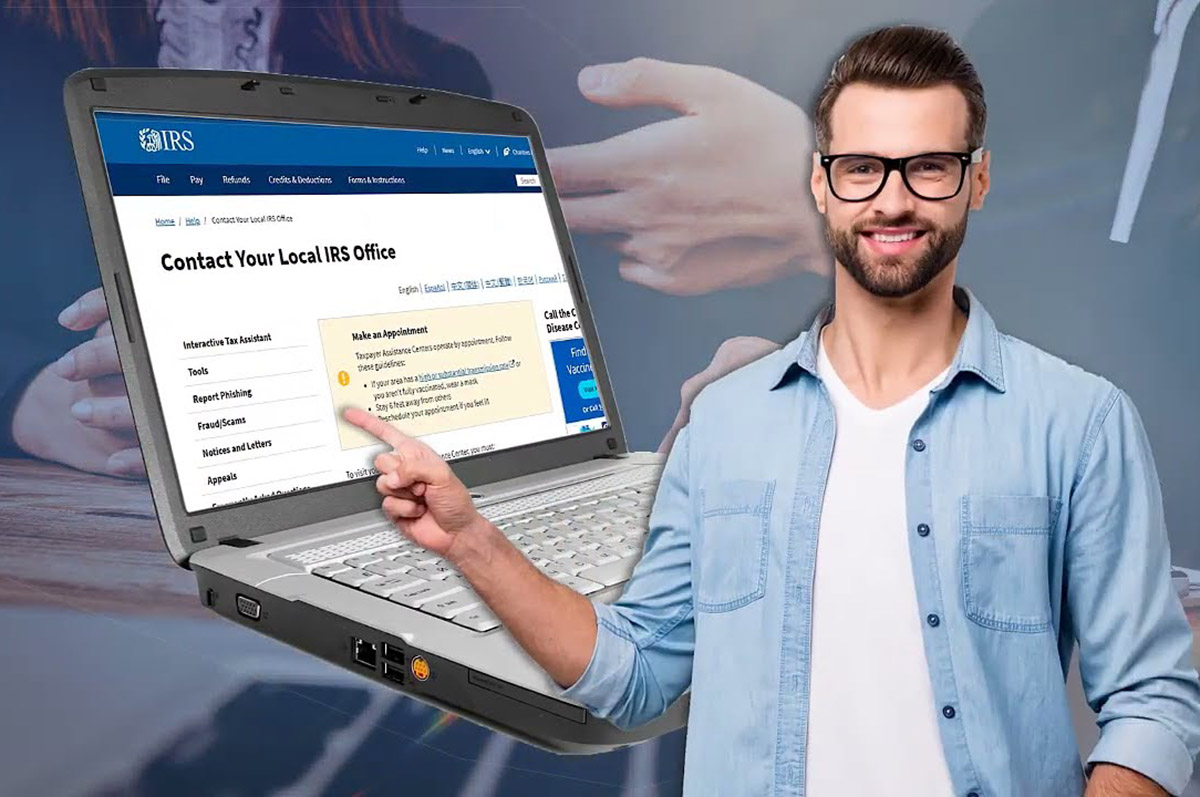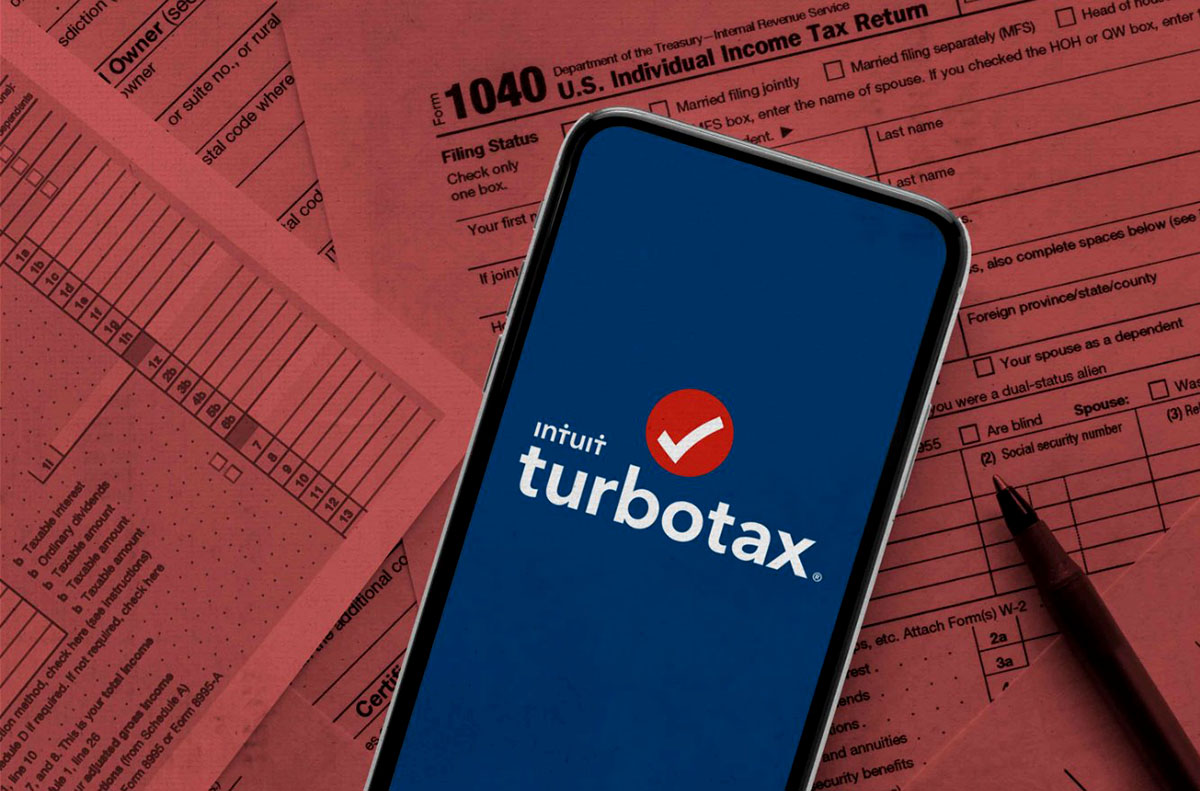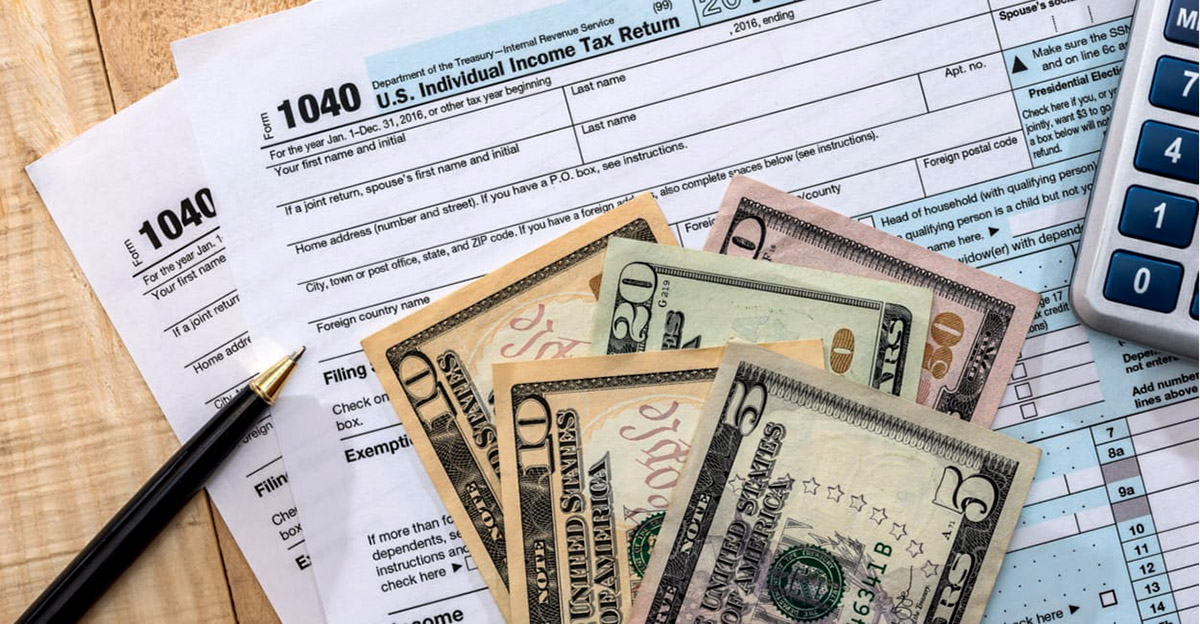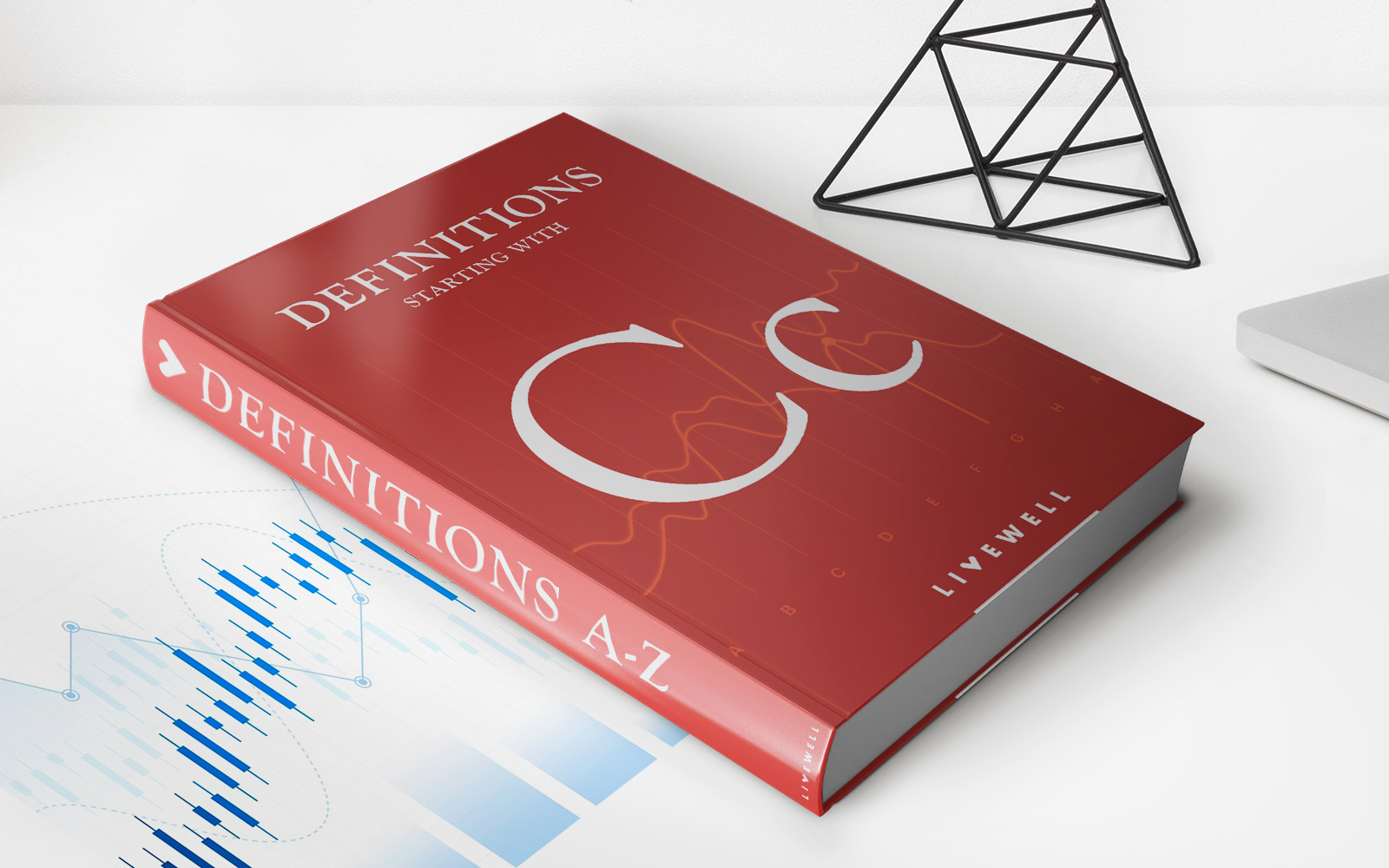

Finance
How To Get More From Your Tax Return
Modified: February 21, 2024
Learn how to maximize your tax return and make the most of your finances with expert tips and strategies in this comprehensive guide on finance.
(Many of the links in this article redirect to a specific reviewed product. Your purchase of these products through affiliate links helps to generate commission for LiveWell, at no extra cost. Learn more)
Table of Contents
Introduction
Welcome to the world of taxes, where understanding the ins and outs of tax returns can help you save money and get the most out of your financial situation. Whether you’re a seasoned taxpayer or a first-time filer, it’s important to have a solid understanding of the tax system and how to make it work to your advantage.
Preparing and filing your tax return can seem daunting, but with a little knowledge and planning, you can navigate the process smoothly and potentially increase your refund or reduce your tax liability. In this article, we will discuss various strategies and tips to help you get more from your tax return.
Before we dive into the details, it’s important to note that tax laws and regulations can change over time. It’s always a good idea to consult with a tax professional or stay updated on the latest tax-related news to ensure you’re following the most current guidelines.
Now, let’s explore some strategies to maximize your tax return and get the most out of your hard-earned money.
Plan Ahead for Your Tax Return
The key to getting the most from your tax return starts long before tax season arrives. Planning ahead and staying organized throughout the year can help you maximize deductions and reduce potential headaches during tax season.
One important aspect of planning ahead is keeping track of your income and expenses. Maintaining detailed records of your financial transactions, such as receipts, invoices, and bank statements, can make it easier to identify deductible expenses and potentially increase your tax refund. Consider using accounting software or mobile apps to streamline this process.
Another crucial step is understanding how changes in your personal circumstances or employment can impact your tax situation. For example, if you’ve recently gotten married, had a child, started a new job, or started a business, it’s important to be aware of the tax implications that come with these life events. In some cases, you may qualify for additional deductions or credits.
Additionally, consider consulting with a tax professional or utilizing tax planning services throughout the year. These professionals can provide personalized advice based on your specific financial situation, helping you make informed decisions that can lead to greater tax savings.
By planning ahead and staying organized, you can ensure that you’re well-prepared to tackle your tax return and potentially maximize your refund or minimize your tax liability.
Maximize Your Deductions
When it comes to maximizing your tax return, one of the most effective strategies is to make full use of available deductions. Deductions are expenses that can be subtracted from your taxable income, reducing the amount of income that is subject to tax.
One of the most common deductions is the standard deduction, which is a fixed amount that taxpayers can claim without having to itemize their expenses. However, depending on your circumstances, it may be more beneficial to itemize your deductions instead.
Itemized deductions allow you to claim specific expenses, such as mortgage interest, property taxes, medical expenses, and charitable contributions. By keeping track of these expenses throughout the year and gathering the necessary documentation, you can potentially increase your overall deductions and lower your taxable income.
In addition to itemized deductions, there are certain deductions that are available to specific groups of taxpayers. For example, self-employed individuals can deduct business expenses, while students may be eligible for education-related deductions.
It’s important to stay updated on the latest tax laws and regulations to ensure you’re taking advantage of all the deductions that apply to your situation. Consulting with a tax professional can be especially helpful in identifying deductions you may not be aware of.
Remember, maximizing your deductions requires careful record-keeping and documentation. Keep proper records of all eligible expenses to support your deductions and avoid potential issues during an audit.
By maximizing your deductions, you can lower your taxable income and potentially increase the amount of your tax refund.
Take Advantage of Tax Credits
In addition to deductions, tax credits can also play a significant role in maximizing your tax return. Unlike deductions that reduce your taxable income, tax credits directly reduce the amount of tax you owe, resulting in potentially larger savings.
There are various tax credits available, and it’s important to be aware of the ones that apply to your specific circumstances. Here are a few commonly claimed tax credits:
- Child Tax Credit: If you have dependent children under the age of 17, you may be eligible for the Child Tax Credit. This credit can significantly reduce your tax liability, with a portion of it being refundable.
- Earned Income Tax Credit (EITC): The EITC is designed to assist low to moderate-income earners. The amount of the credit depends on your income and the number of qualifying dependents you have. It can result in a substantial tax refund.
- Education Credits: There are various education-related tax credits available, such as the American Opportunity Credit and the Lifetime Learning Credit. These can help offset the cost of higher education expenses for yourself or your dependents.
- Saver’s Credit: If you contribute to certain retirement savings accounts, such as an IRA or a 401(k), you may be eligible for the Saver’s Credit. This credit encourages individuals to save for their retirement.
These are just a few examples of the many tax credits available. Research and determine which credits you qualify for and be sure to claim them on your tax return.
Remember that tax credits are typically more valuable than deductions, as they directly reduce your tax liability. Be sure to take advantage of all the tax credits for which you are eligible in order to maximize your tax return.
Utilize Tax-Advantaged Accounts
Another effective way to get more from your tax return is to take advantage of tax-advantaged accounts. These accounts offer tax benefits, such as tax deductions or tax-free growth, which can help you save money in the long run.
Here are a few tax-advantaged accounts to consider:
- 401(k) or 403(b) Retirement Plans: If your employer offers a retirement plan, such as a 401(k) or 403(b), contribute as much as you can afford. Contributions to these plans are made pre-tax, meaning they are deducted from your taxable income for the year.
- Traditional Individual Retirement Accounts (IRAs): Contributing to a traditional IRA can also provide tax benefits. The contributions may be tax-deductible, and the earnings grow tax-deferred until you make withdrawals during retirement.
- Roth IRAs: While contributions to a Roth IRA are not tax-deductible, qualified withdrawals in retirement are tax-free. This can be advantageous if you expect to be in a higher tax bracket when you retire.
- Health Savings Accounts (HSAs): If you have a high-deductible health insurance plan, consider opening an HSA. Contributions to an HSA are tax-deductible, and withdrawals for qualified medical expenses are tax-free.
By utilizing these tax-advantaged accounts, you can potentially reduce your taxable income, increase your retirement savings, and save on taxes in the long term.
However, it’s important to note that there are contribution limits, eligibility requirements, and other rules associated with each type of account. Consult with a financial advisor or tax professional to determine the best strategy for your financial situation.
Remember to take advantage of these tax-advantaged accounts and contribute regularly to maximize your tax savings and overall financial well-being.
Keep Good Records
One crucial aspect of maximizing your tax return is keeping good records of your financial transactions. Proper record-keeping ensures that you have accurate and complete documentation to support your deductions, credits, and other tax-related claims.
Here are some tips for maintaining good records:
- Organize Your Documents: Establish a system to organize your financial documents, such as receipts, invoices, bank statements, and tax forms. Choose a method that works for you, whether it’s using physical folders or electronic filing systems.
- Save Digital Copies: Consider scanning or taking photos of your receipts and important documents. This helps ensure that you have backup copies of your records in case of loss or damage.
- Separate Business and Personal Expenses: If you’re a business owner or self-employed, it’s especially important to keep your business and personal expenses separate. Maintain separate bank accounts and credit cards for business purposes to simplify record-keeping.
- Track Mileage: If you use your vehicle for business purposes, keep a log of your mileage. This can be valuable documentation for claiming deductions related to business travel.
- Maintain Investment and Retirement Account Records: Keep track of your investment statements, trade confirmations, and annual retirement account contributions. This information is essential for accurately reporting investment income and calculating gains or losses.
By keeping good records throughout the year, you’ll be better prepared to complete your tax return accurately and efficiently. It can also help you avoid missing out on deductions or credits due to lack of documentation.
Remember to retain your records for the appropriate amount of time. The IRS generally recommends keeping tax records for at least three years, but in some cases, such as if you’ve underreported income, it’s wise to retain records for up to seven years.
Good record-keeping not only benefits your tax return but also serves as a valuable financial management practice, allowing you to track expenses, monitor your financial progress, and make informed financial decisions.
Get Professional Help
When it comes to navigating the complex world of taxes, seeking professional help can be a wise decision. Tax regulations are constantly changing, and the expertise of a tax professional can ensure that you’re accurately reporting your income, maximizing deductions, and taking advantage of all available credits and incentives.
Here are a few ways that a tax professional can assist you:
- Tax Preparation: Tax professionals can help you prepare and file your tax return accurately and on time. They stay updated on the latest tax laws and regulations, minimizing the chance of errors and potential audit triggers.
- Tax Planning: By working with a tax professional throughout the year, you can develop a proactive tax strategy to minimize your tax liability. They can help you identify opportunities for deductions and credits based on your financial goals and circumstances.
- Complex Tax Situations: If you have a complex financial situation, such as owning a business, investing in real estate, or working internationally, a tax professional can provide specialized knowledge and advice to optimize your tax position.
- Audit Protection: In the event of an IRS audit or correspondence, having a tax professional by your side can provide peace of mind. They can handle communication with the IRS, represent you during the audit process, and ensure your rights are protected.
When looking for a tax professional, consider hiring a certified public accountant (CPA), an enrolled agent (EA), or a tax attorney. These professionals have the expertise and credentials to handle various tax matters.
Remember, while seeking professional help does involve some cost, the potential savings and peace of mind they can provide often outweigh the investment. Plus, their fees may even be tax-deductible.
Consult with multiple professionals and choose someone you feel comfortable working with and who understands your unique financial situation and goals. Building a long-term relationship with a trusted tax advisor can yield ongoing benefits and ensure that you’re consistently getting the most from your tax return.
Be Mindful of Deadlines
One of the most important aspects of ensuring you get the most from your tax return is being mindful of tax deadlines. Missing important deadlines can result in penalties, interest charges, and potentially even a loss of valuable deductions or credits.
Here are some key tax deadlines to keep in mind:
- April 15: This is the deadline for most individuals to file their federal tax return. It’s important to submit your return by this date to avoid penalties for late filing.
- State & Local Deadlines: In addition to federal taxes, you may have state and local tax obligations as well. Make sure to be aware of the specific deadlines for filing your state and local tax returns.
- Extension Deadline: If you need more time to file your tax return, you can request an extension. Keep in mind that an extension to file is not an extension to pay any taxes owed. The extension deadline is typically October 15.
- Estimated Tax Payments: If you are self-employed or have significant income not subject to withholding, you may need to make estimated tax payments. These payments are due quarterly throughout the year, typically on April 15, June 15, September 15, and January 15 of the following year.
Missing a tax deadline can result in penalties and interest charges. It’s crucial to mark these dates in your calendar and plan ahead to ensure you have enough time to gather necessary documents and complete your tax return accurately.
If you’re unable to file your tax return by the deadline, it’s better to file an extension than to file late. Filing an extension can help you avoid the failure-to-file penalty, but keep in mind that you must still pay any taxes owed by the original deadline to avoid the failure-to-pay penalty and interest charges.
Being mindful of tax deadlines and staying organized throughout the year can help ensure a smooth tax filing process and potentially maximize your tax return.
Avoid Common Tax Mistakes
When it comes to filing your tax return, avoiding common mistakes can help you maximize your tax return and ensure a smooth filing process. Here are some common tax mistakes to avoid:
- Incorrect or Missing Information: Double-check all personal information, such as your name, Social Security number, and filing status, before submitting your tax return. Incorrect or missing information can result in delays and potential issues with the IRS.
- Mathematical Errors: Simple math errors can lead to miscalculations and potentially trigger an audit. Use a calculator or tax software to ensure accurate calculations when preparing your return.
- Forgetting to Sign or Date: Don’t forget to sign and date your tax return. A missing signature can render your return invalid and cause delays in processing.
- Not Choosing the Correct Filing Status: Choosing the wrong filing status can impact your tax liability and potentially result in missed deductions or credits. Review the different filing statuses and choose the one that best fits your situation.
- Forgetting to Report All Income: Ensure that you report all sources of income, including income from freelance work, side gigs, rental properties, and investments. Failure to report all income can result in penalties and interest charges.
- Overlooking Deductions and Credits: Take the time to research and understand the deductions and credits that you may qualify for. Commonly overlooked deductions include state sales taxes, medical expenses, and educator expenses.
- Not Keeping Copies of Your Tax Return: After filing your tax return, make sure to keep a copy for your records. Having a copy on hand can be helpful for reference purposes and in the event of an audit or review.
Additionally, beware of tax scams and avoid providing personal information or making payments to anyone claiming to be an IRS representative without proper verification. The IRS will never contact you via email or phone to request personal or financial information.
Remember, accuracy and attention to detail are crucial when it comes to filing your tax return. Taking the time to review your return before submission can help you avoid common mistakes and potentially maximize your tax refund.
Conclusion
Maximizing your tax return requires careful planning, organization, and knowledge of the tax system. By implementing the strategies discussed in this article, you can increase your chances of getting the most out of your tax return and potentially reduce your tax liability.
Plan ahead for your tax return by staying organized throughout the year and being aware of any changes in your financial situation that may affect your taxes. Maximize your deductions by keeping track of eligible expenses and considering itemizing your deductions if it makes financial sense.
Take advantage of tax credits that you qualify for, as they directly reduce your tax liability and can result in significant savings. Utilize tax-advantaged accounts, such as retirement plans and health savings accounts, to enjoy tax benefits and save for the future.
Keep good records to ensure accurate reporting and support your deductions and credits. Seek professional help when needed to navigate complex tax situations and ensure compliance with tax laws.
Stay mindful of tax deadlines and avoid common tax mistakes that can lead to penalties and delays. By being proactive and careful with your tax return, you can confidently file your taxes and potentially enhance your financial well-being.
In summary, with proper planning, organization, and knowledge, you can maximize your tax return and make the most of your financial situation. Remember to consult with a tax professional or financial advisor to tailor these strategies to your specific needs and circumstances.
By taking control of your taxes and implementing these strategies, you can make tax season a little less stressful and potentially enjoy a greater refund or reduced tax liability.














